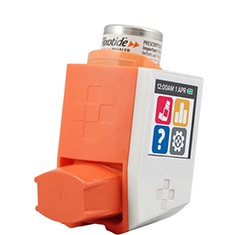 Asthma UK, a British nonprofit dedicated to fighting asthma, has released a report highlighting the role connected health has to play in treating asthma and reducing the number of preventable deaths from the disease.
Asthma UK, a British nonprofit dedicated to fighting asthma, has released a report highlighting the role connected health has to play in treating asthma and reducing the number of preventable deaths from the disease.
"At Asthma UK we are determined to stop asthma attacks." Asthma UK CEO Kay Boycott writes in the introduction to the report. "Outcomes have plateaued in recent years and this must be changed. Our last major breakthrough was the inhaler and we are hugely excited by the prospect of smart inhalers coupled with mobile devices. We believe mHealth solutions are the future for asthma care and the key to reducing highly preventable deaths."
The report lays out a number of different ways digital health can help address asthma, both patient-facing and provider-facing. Patient-facing innovations include smart or connected inhalers, which can improve medication adherence; apps that track treatment and triggers which can help patients understand their individual asthma and move to prevent attacks; and tools that help patients reach out to a provider in an emergency, even if they might be in the midst of an attack and have trouble speaking.
On the provider side, the report talks about remote monitoring tools, risk stratification, and using eprescribing records to identify areas of the country where adherence or symptoms are worst. In addition, providers and patients can work together by conducting asthma checkups remotely, to improve the chances patients will attend, and by presenting patients' personal asthma plans in digital form so they're harder to lose and easier to follow.
"There have been some promising developments in asthma, as you will see in this report, but for now they remain piecemeal and have failed to reduce the complexities and guesswork from managing an episodic condition with multiple triggers and complex treatment," the report reads. "Asthma has the best evidence that self-management works, but with 5.4 million people in the UK with asthma we can only be able to deliver at scale cost effectively by industrializing technology solutions."
As such, the report includes not only a list of technologies, but recommendations for deploying and scaling them. For instance, the report concludes that smart inhalers need more real-world testing so they can be deployed broadly by the NHS.
"Many promising technologies are already starting to come through, and could be transformational if they are embedded within a connected environment for asthma care," the report says. "To achieve this, ongoing efforts aimed at tackling longstanding issues such as linking data across all care settings in the NHS need to be resolved, as does ensuring barriers around interoperability in the NHS are removed. Addressing these issues is vital to ensure the NHS as a whole is able to fully respond to the opportunities open to it through the potential of technology-enabled care."


















